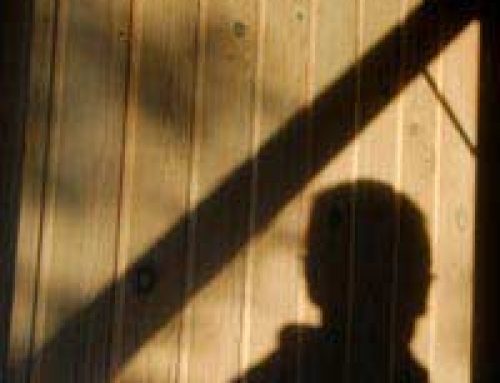
With the state possessing a disquieting number of different powers of entry, an Englishman’s home is less a castle than an open house.
Is an Englishman’s Home Still His Castle?
“An Englishman’s home is his castle” is a much cherished phrase that highlights a national inclination to claim a piece of English soil as one’s own private kingdom. But whereas it once had real meaning – being coined in 1604 as a legal principle to protect householders from bailiffs – it now rings somewhat empty.
The drift towards a ‘surveillance society’, where privacy and individual freedom are eroded in the interests of Big Brother-like state observation and control, has been a growing concern for several years now. The fears are largely directed at the threat to public liberty posed by CCTV and data collection, but recent research suggests that citizens are not even safe from the invasive eye of the state in their own private homes.
Privacy Invasion
However begrudgingly, we now largely accept that when in public, whether at work, in the street, or on public transport, our actions may be being monitored. But once behind our front door we assume we can shut out the outside world. What most are unaware of, however, is that by means of ‘powers of entry’, the state is even able to permeate this supposedly private domain.
An incremental growth in the number of state powers of entry over the years has meant that there are now over 1200 reasons why a council official may be permitted to enter a property without a warrant, something that even the police are not allowed to do.
Assortment of Powers of Entry
The myriad of excuses to breach the privacy of the home include recent rights to look for look for smuggled goods, pot plants without a ‘plant passport’ (2005 Order) or investigate suspected gambling without a licence (2005 Act). Laws also cover aspects like anti-terror, environmental and consumer protection and anti-social behaviour.
As the powers date as far back as 1737 there are some rather archaic reasons for state inspectors to enter your home still in existence, such as to search for a dancing bear without a permit (1925 Act), or to check for unregulated hypnotists (1952 Act) or forged stamps (1868 Act).
The irrelevance of individual powers may undermine the seriousness of the supposed threat to privacy but the sheer weight of numbers means that it is near impossible to fully understand what the potential threats are, and it is the unknowing that generates unease and a fear about the unexpected knock at the door. In effect a state official could cite any number of obscure powers of entry to bamboozle a householder into gaining admittance to their property.
Of further concern is the fact that this is largely a recent development, with nearly half of the powers of entry having being introduced during Labour’s government tenure between 1997 and 2010.
Short-Sightedness and Wider Consequences
Some have seen this as a further sign of that government’s total disregard for privacy and personal sanctuary. The introduction of each new power was justified by individual circumstances without any thought to the wider consequences, and so in effect they were not consciously stripping away freedoms but just paying them no heed.
For instance, a concern about hedge sizes causing neighbourly friction prompted a law allowing inspectors to measure a hedge’s height but as this meant they may need to pass through someone’s property, a power of entry was duly created. Concern for the implications this would have against civil liberties were less of a priority than solving disputes about hedges.
The state’s duties are largely focused on public and not the private domain and so many feel their powers should reflect this.





Can I take my neighbour to court for intimidatingme an my family. l sufferd postnatle deprresion over 10 years ago folowing the premiture birth of my 3rd child.they are always wasting police time causing distress to all us all.as a family
My neighbour moved in next door in about 2005/6. He wanted to make a few changes which we agreed to with no problem. I noticed small things at first such as my plants dying in my front flowerbed (next to his driveway), litter in our front garden and sharp pointy things in our rear garden (one of which my dog got in her mouth). He had a raised patio put in so we have lost our privacy in our back garden. The next thing is I noticed rusty nails etc. which had been thrown over into our pathway which the dogs could have got. Last year we had a new rear fence erected which has loose trellis panels on the top. Twice he has pulled the trellis off the fence panel (the one nearest to his garden) and 3 times he has broken my little ornamental hedgehog (which is again accessible from his side). A fence post (our fence) at the side of the garden had just been snapped off, which we had to pay to get repaired. Now to top it all he has broken a glass panel in our greenhouse (accessible from his side again). It has obviously been bashed with something and has left a hole and has cracked the glass panel right across. My husband is not in good health and I also have two dogs and I am getting very concerned/worried as to what he will do next. We do not understand why he is doing this as we have always tried to be good neighbours. He seems to wait until after dark, its seems when I am in the front of our house and so I cannot hear anything in our back garden. I am going to get a sensor flood light put in at the back as a deterrent. I have also started writing down the dates and details of what he has done. Anyone have any ideas what I can do? I don’t want to confront him, he is quite a large rather grumpy unapproachable man. Never liked him much, now I really can’t stand him! Why is he picking on us, is it because my hubby is ill and vunerable? Why do people get pleasure out of this behaviour. We just want a quiet life, we have enough problems!
Most of what you describe above is criminal damage, so your local police should be able to help you.
My husband and I in our 70’s moved into a bungalow due to health issues. Our neighbours huge, fat son obstructs our driveway so that we cannot use it. One summer he jet washed the drive everyday for 6 weeks washing dirt, water and debris down onto our drive. My husband who has angina cleared it up and painted the filth on our walls. As he was painting it the son got out a leaf blower and blew grit into my husbands eyes also ruining the paintwork. He has drilled holes into our brand new fence. when we remonstrated with him he tried to grab my elderly husband and threatened to knock him to the ground. He stares in an intimidating way at me in the kitchen even when asked to stop. When we said we will go to the police he threatened to burn our bungalow down if we did. I feel like killing myself as he just will not let up. Our life is just one of stress.
i have lived in flats all my life from age 16 and now 46. im having troble with my neighbor below me with banging every day. just plonging things down numeras times through the day and night slaming cupboard doors walking about on noisey floor borads. talking loud all times of the day and night. i cant take this any more. he does it to wind me up. if i turn off a switch he can hear it. i can hear his switches so i know he can here mine. if i move on my bed he can here it and responds. im always on egg shelss trying not to make a sound. but if i do he will punish me for it. he is trying to bully me into sillence. it happens far to often to be a coincidence. we hate each other so it can not be resolved. i can not cope living like this any more. i need another option to live without neighbors attached to the same home. please help
The land adjoining mine is owned by the local council and they have allowed two trees which are now over 30 feet tall to grow unmaintained over years. These trees shed their leaves on my property every year. They are killing off the trees and shrubs in my garden and also stop me from gaining access to the rear of my fence. I approached the council politely and they have declined to cut down the trees, saying they are not a health and safety risk and therefore they will not cut them down. Is there anything I can do to make them. If they had maintained their property properly in the first place these trees would never have been able to grow.
I moved into my permanent council home just over a year ago and my neighbour who owns his home is threatening us, harassing us and constantly calling the police to ur home, accusing us of making noise, I have 4 children and yes we make noise during the day, he also shouts when my children are playing in the garden to the point that i have moved their trampoline into the driveway, he is making every attempt to get me evicted from my home, this is causing me extreme anxiety, as all i am trying to do is lie a normal life with my children. What can I do
i moved to my house 7 yrs ago i have put in so many complaints to council about the woman next door she has partys most nights one party went on untill 9 in the morning kids running up and down road outside in garden banging pots together during the day she has music so loud that i cant hear my own tv we have to sleep with windows closed which isnt good in this heat when i complain she retaliates by making more noise or throwing dirty water over my fence which went all over me she has thrown pasta sauce over my garden set she is constantly rowing with her boyfriend so i have to listen to her kids crying begging them to stop , she does know shes annoying me as she has been heard saying with all this black lives matter stuff going on she can basically do what ever she wants and council wont do anything i tried the out of hrs service but no one came out i have ptsd deppression anxiety attacks and panic and this is effecting my mental health i feel like no one is listening to me